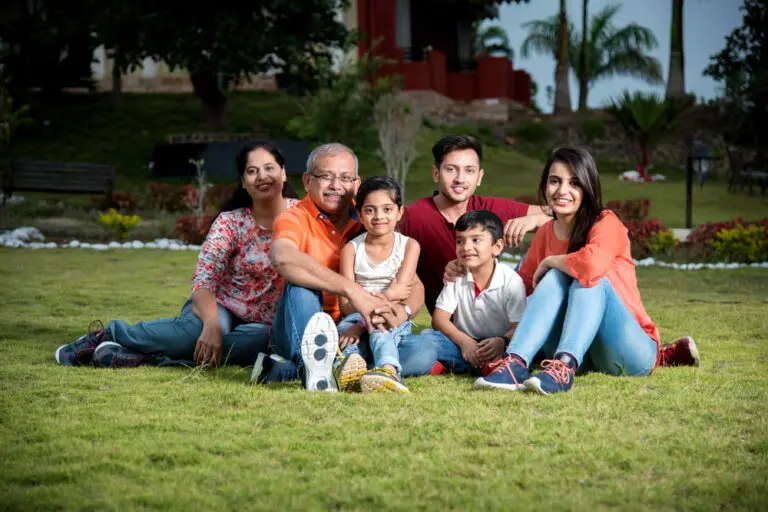


Discovering your family’s medical legacy can be a powerful tool for managing your health. Understanding the medical conditions that run in your family can help you and your doctor identify potential ailment risks and develop appropriate screening and prevention strategies.
However, finding this information can often be a problem. Family members may be reluctant to discuss health issues, medical records can be difficult to access, and there may be ethical considerations around sharing sensitive private information.
Despite these challenges, there are several ways to uncover medically valuable data about your family, and we have given you many ideas for this.
By taking the time to gather this information, you can make more informed decisions about your well-being and potentially prevent or manage chronic conditions.
Remember, having your doctor’s letter explaining why your quest for family health patterns is important will be very useful. It will add credibility when you ask for information from various sources.
Likewise, having current family members’ authorizations to collect information on their ancestors’ medical lineage would be a good idea. All this documentation will help you get past any ethical or privacy hurdles.
According to WebMD, one of the best places to start gathering information about your family’s medical heritage is to sit down with your existing relatives and ask them about their health. Also, ask them how far back into their past generations they can remember ailment information.
Make a list of questions ahead of time and record the information you gather. Be sure to ask about any chronic conditions, surgeries, hospitalizations, and causes of death. Keep in mind that some family members may be reluctant to discuss such issues, so approach the conversation with sensitivity.
According to the Genetic Alliance, don’t limit your search to immediate family members; reach out to aunts, uncles, cousins, and other relatives. They may have valuable information about your family’s medical past that you weren’t aware of. Catching up with extended family members can offer an excellent opportunity to learn more about your wider family’s health background and to ask for more layers of information.
According to the Columbia University Irving Medical Center, family reunions are a great opportunity to learn more about your family’s medical patterns and to ask relatives for more information. See if you can gather old family letters, photographs, diaries, or journals that could throw up a few clues.

According to Barbara Krasner-Khait, writing in Family Tree Magazine, if you can access old medical records, review them for information on diagnoses, treatments, and surgeries. This may sometimes lead you to other towns and cities where large parts of your family originally lived. Look up any State records of births and deaths.
Also, look up local hospitals for retrievable patient information. Obituaries, usually available in the archives of newspaper offices of your family’s places of origin, can sometimes provide valuable information on health conditions that run in your family.
Many doctor families may have handled patient families – down the generations on both sides. This still happens in many a small town or city, although not as often anymore in a bigger metropolis.
If your family has fortuitously always had the same family of doctors looking after them for generations, your doctor could be a great source of information about patients in your family whose parents or grandparents have been doctors for before. It’s a rare shot but worth a try.
Genealogy databases are not a very prevalent concept in India, but some medical historians have recently begun to collate information for specific research that could be useful to you.
For example, if there were rare old cases of certain diseases with a pattern that medical historians have been interested in studying and documenting, your family ancestors may, perchance, have been included in such case history research. Access any medical historian for contact with many others of that profession – and ask permission to see their research papers.
According to Brandon M. Welch, MS, Ph.D. et al., writing in their medical paper in the AMIA Annual Symposium Proceedings Archive, social media can be a beneficial tool for gathering information about your family’s medical history. There have been so many interesting stories about people discovering their roots by connecting with others they never knew were part of their families.
Post questions about your family’s health narrative and ask family members (or anyone who knows about your family) to respond. Be sure to respect their privacy and only share information with their consent.
Genetic testing or DNA testing services can provide health reports that may shed light on genetic conditions that run in your family. It’s important to keep in mind, though, that you will still need to share your genetic tests with a qualified doctor to know which traits you’ve discovered are normal and which constitute a disability or disorder.
And, if relatives have also undergone these tests, see if they are willing to share some of the discovered details.

Many insurance companies keep records for several decades. Looking at past insurance claims from near or far relatives can provide information on the types of medical procedures and treatments your family members have received.
Keep track of any patterns you notice, and consider contacting the insurance provider for more information. Remember, though, that privacy laws could control such data. So, make the authenticity of your medical search understood by the insurance companies to get their help.
When examining your family’s past health patterns, specific chronic ailments need particular scrutiny. Illnesses such as obesity, cholesterol, diabetes, and hypertension, can all have a multiplicative effect on the heart. According to CDC, genetics can play a huge part in the prevalence of these medical conditions.
Some of these diseases may not, in the older days, have been viewed with as much seriousness as they are today. But whether your ancestors and their doctors worried as much about these diseases or not, they have become major concerns in the world we live in today. So try to get as much data as possible on the recurrences of these conditions in your family’s health inheritance.
After gathering as much information as you can about these conditions in the genetic models of your family, discuss these with your doctor to assess risks to you, your currently living family members, and your oncoming generations. If your doctor can locate and monitor early signs, it will help reduce or control issues like high cholesterol levels, high blood sugar, hypertension, or obesity side effects.
When family members know that you are trying to help them manage their health better and are putting together as much information as possible to help everybody understand their medical legacy, you will find many relatives ready and willing to engage in your pursuit with you. This could become one more happy reason to connect with your kin who have dispersed globally. Families share many bonds, and among them are the invaluable bonds of the heart and health. Here is our good wish for you and your family: Stay heart-healthy. Be a Zinda Dil.